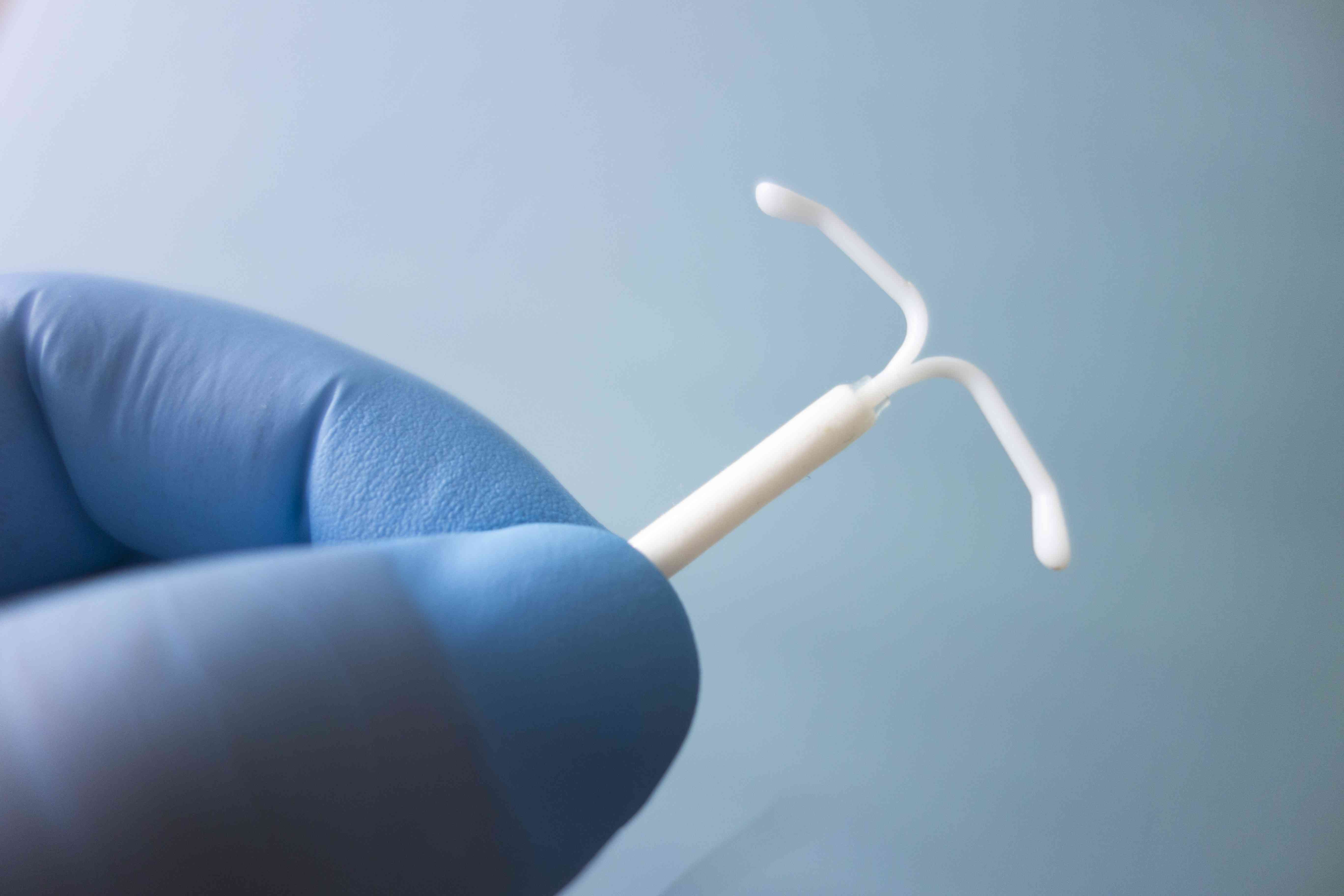Can an IUD Raise Your Risk of Breast Cancer?

A new study found that women who used levonorgestrel-releasing IUDS are at a slightly higher risk of developing breast cancer as compared to non-users

Lalocracio / Getty Images
- A recent study found that women who use levonorgestrel-releasing IUDs are at a higher risk of developing breast cancer compared to those who don't.
- The women in the study who used these hormonal IUDs had a 40% higher risk of developing breast cancer—and similar studies also found heightened odds of breast cancer.
- However, experts stressed that the likelihood of developing breast cancer while using levonorgestrel-releasing IUDs is still quite low.
A recent study has found that women who use intrauterine devices, or IUDs, that release a hormonal contraceptive called levonorgestrel are at a higher risk of developing breast cancer compared to those who don’t.
The research adds to growing evidence suggesting a link between heightened odds of breast cancer and levonorgestrel-releasing IUDs, which are known as Mirena, Liletta, Kyleena, and Skyla in the United States.
“Studies like this are important so that we may learn more about breast cancer risk,” Georgia Spear, MD, division chief of the department of breast imaging at Endeavor Health, who wasn't affiliated with the study, told Health.
However, Spear and other experts stress that the odds of developing breast cancer while using levonorgestrel-releasing IUDs are still quite low.
So what exactly did the findings show? And should you worry if you use this type of birth control? Here’s what to know.
What Are Hormonal IUDs?
An IUD is a T-shaped device that’s inserted into your uterus and used to prevent pregnancy. There are two types: copper IUDs and hormonal IUDs.
As its name suggests, copper IUDs include copper, a material that makes the uterus a less hospitable place for sperm. On the other hand, hormonal IUDs, also called levonorgestrel-releasing IUDs (LNG-IUDs), are made of plastic and work by releasing levonorgestrel—a type of progestin, which is a synthetic form of the hormone progesterone—to prevent pregnancy.
“They work by thickening cervical mucus to prevent sperm from reaching an egg, thinning the uterine lining to reduce the chances of implantation, and sometimes inhibiting ovulation,” Lina Steinrud Mørch, PhD, lead author of the study and the head of the cancer pharmacoepidemiology group at the Danish Cancer Institute, told Health.
What Exactly Did the Study Find?
For the study, published October 16 in the journal JAMA, Mørch and her team pulled data on 157,190 women from Danish nationwide health registries between 2000 and 2019. The women were between 15 and 49 years old, with most being around 38.
Before the research began, the participants had not used any hormonal contraception for at least five years—making this the first study to control for other hormonal exposures, according to Mørch.
The researchers compared 78,595 women who used levonorgestrel-releasing intrauterine devices with 78,595 women who had not used the IUDs “but otherwise had similar characteristics,” Mørch said.
Participants were followed until either the end of 2022 or until they were diagnosed with breast cancer or another type of cancer, became pregnant, started postmenopausal hormone therapy, left the country, or died. In total, researchers checked up on the women for up to 15 years.
Overall, the women who used LNG-IUDs had a 40% higher risk of developing breast cancer. In other words, that group had about 14 additional breast cancer diagnoses per 10,000 women.
“Hormones like estrogen and progestin may stimulate the growth of hormone-sensitive tissues, including breast tissue, which could explain the observed risks,” Mørch explained.
Building on the Research
According to Mørch, there have been “very few previous studies” on breast cancer risk and hormonal IUDs specifically.
The ones that do exist, though, also suggest that IUDs containing progestin may elevate the risk of breast cancer. A 2020 study out of England found that those using LNG-IUDs had about a 20% to 30% relative risk of developing breast cancer.
Another study from 2017 that Mørch co-authored also found heightened odds of breast cancer at 20%. For that study, researchers also discovered that birth control pills or injections releasing progestin carried the same increased risk of breast cancer.
The association between birth control pills and higher odds of developing breast cancer—as well as cervical cancer—has long been known. But research has also found that oral contraception may decrease the risk of ovarian, endometrial, and colorectal cancers at the same time.
Should You Worry About Using a Hormonal IUD?
Experts say there’s no reason to panic if you use or want to use LNG-IUDs.
More research is necessary before applying the study’s findings to the U.S. population, cautioned Jillian LoPiano, MD, MPH, an OB-GYN and the chief health officer at Wisp. “When talking about breast cancer, the risks are multifactorial and involve population genetics, lifestyle factors, etc,” she told Health. “So while this data is interesting and certainly can be part of doctor/patient conversations, the context of the population does matter.”
Other study limitations are its observational nature, “which may include bias by unknown factors,” and the fact that it didn’t look at low-dose hormonal IUDs, Mørch said.
But even if the study had no limitations, Spear said that it’s important to keep in mind that for most people, the benefits of contraception outweigh the risk of developing breast cancer, which remains low.
“This study in and of itself should not create fear about contraceptive methods,” Spear said. Rather, it should encourage a conversation with a physician, especially for people with a strong family history of breast cancer or other risk factors.
For people particularly concerned about hormone-related cancer risks, Mørch said, “non-hormonal IUDs, like the copper IUD, or barrier methods like condoms may be considered ‘safer’ alternatives.” However, “the low-dose hormonal IUDs could also be an alternative since the doses are much lower than the high-dose IUDs, and therefore presumed more safe.”
This story originally appeared on: Health News - Author:Elizabeth Yuko, PhD


















